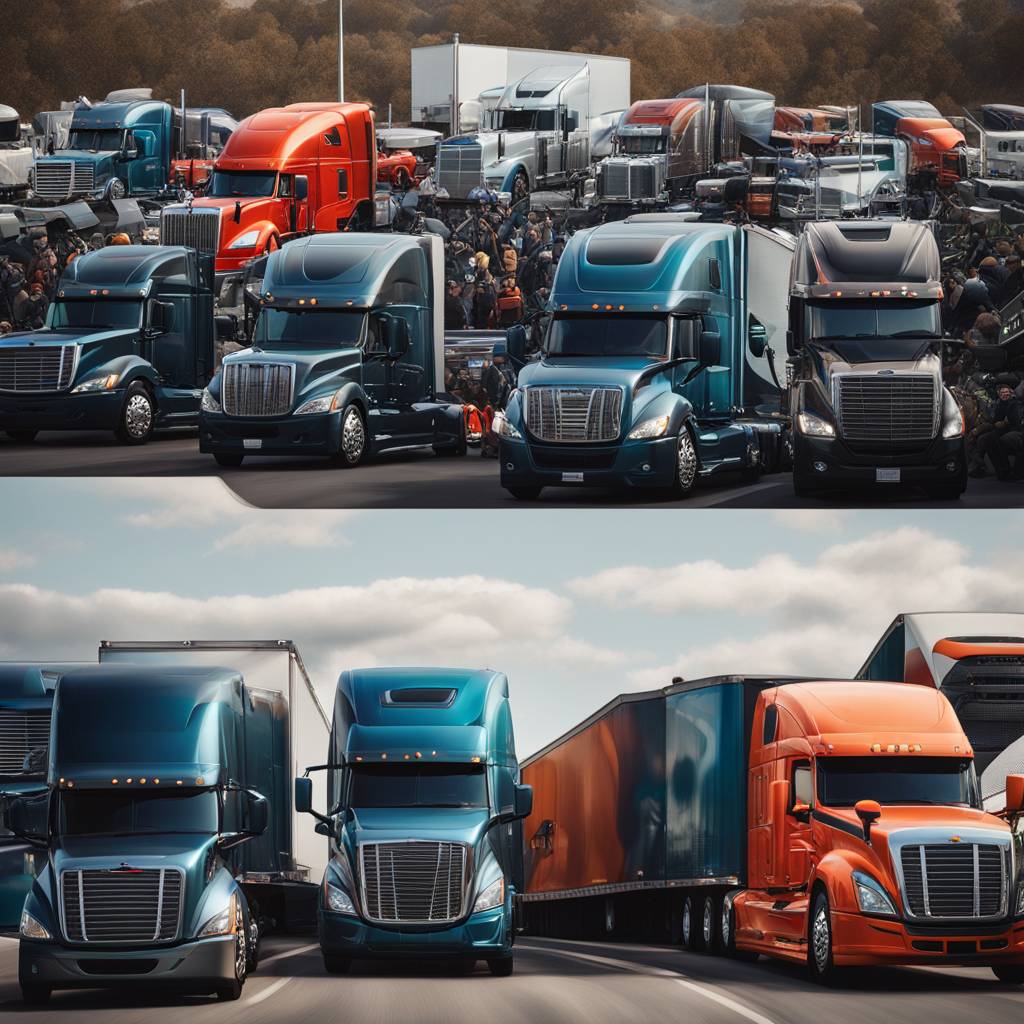American truck drivers are concerned about the Biden administration’s plan to transition the heavy-duty vehicle sector to all-electric regulations that were recently finalized by the Environmental Protection Agency. The drivers highlighted the limitations of current electric heavy-duty vehicle technology, citing issues such as low performance in cold weather conditions, shorter range, lack of high-powered charging infrastructure, and power grid upgrades needed for fueling vehicles. The regulations are set to go into effect in 2026 for model year 2027 vehicles and will impact various types of trucks, buses, and other vehicles through model year 2032. The EPA projected that a significant portion of vocational and tractor-trailer trucks produced in 2032 would be electric.
One of the main concerns raised by truck drivers is the practicality and efficiency of electric trucks compared to traditional diesel-powered vehicles. Electric trucks generally have shorter ranges and longer charging times, posing potential challenges for truckers who rely on their vehicles for long hauls. In addition, the cost of electric trucks is significantly higher than traditional diesel models, making them less accessible for many in the industry. Another issue highlighted is the ability of electric trucks to perform tasks that require a power takeoff when the vehicle is stationary, which may present additional challenges for those in the sector. The American Trucking Associations estimates that trucks transported 11.5 billion tons of freight in 2022, highlighting the importance of addressing these concerns.
Despite the push for electrification, less than 1% of new truck sales in the U.S. are zero emissions, according to industry data. The lack of charging infrastructure is another significant barrier to the widespread adoption of electric trucks, as there are currently only 160,000 charging ports in the U.S., far below the estimated 28 million needed by 2030 to meet electrification goals. Concerns have also been raised about the readiness of the U.S. power grid to handle the increased demand that would result from widespread electrification of the transportation sector. Industry groups, including the American Trucking Associations and American Bus Association, have voiced their opposition to the EPA’s regulations, citing the burdensome costs and long-term issues associated with the transition to electric vehicles.
Truck drivers and industry groups are calling for a more measured approach to transitioning to electric vehicles, emphasizing the need for more research and development to address the limitations of current technology. They argue that the regulations are being implemented without a full understanding of the challenges faced by truckers and the potential impacts on the industry. While the EPA has defended its regulations as a step towards improving public health and providing flexibility for fleet owners and operators to choose the best technologies for their operations, critics argue that more consideration should be given to the practicalities and feasibility of transitioning to electric heavy-duty vehicles. The debate over the future of heavy-duty vehicles in the U.S. will likely continue as the industry grapples with the complexities of transitioning to a more sustainable transportation system.















